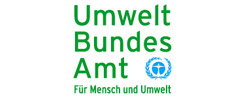Rotterdam Convention COP 7 (May 13th 2015). ROCA /WECF Side Event on “Chrysotile Asbestos and the question: Who pays the Bill?”
More than 70 people attended a successful, informative and emotional Side Event at COP 7 in Geneva Testimonials and Dialogue
14.05.2015 |

Sanjiv and Dr Tran speaking to day at the ROCA side event
The ROCA/WECF Side event “Chrysotile Asbestos and the question: Who pays the Bill?” with testimonials of victims who suffer from lifelong health effects from exposure to chrysotile asbestos showed once more the urgent need to listing chrysotile asbestos to Annex III of the Rotterdam Convention.
The event, attended by more than 70 people, was a real contrast to the numerous interventions of Parties in the morning plenary of COP7, opposing the listing of chrysotile asbestos by disseminating the claim that they are not aware of any health impacts resulting from the exposure to asbestos.
The event was accompanied by a key note message from Elizabet Paunovic, head of WHO European Centre of Health and Environment, calling all Parties of the COP finally to take responsibility and vote for listing. ROCA/WECF screened WHO’s new film “Chrysotile Asbestos – Voices from South-East-Asia” which makes the voices of asbestos victims heard.
A highlight was the presence of the Indian worker Sharad Vittnal Sawant, who pleaded for listing of the substance. He and his wife suffer, after working with chrysotile asbestos for 40 years, from asbestosis and he made the audience to witnesses of what kind of incredible impact chrysotile asbestos has and who in reality has to pay the bill.
The panel of speakers consisted of Tran Tuan from the Vietnam Research and Training Centre for Community development, South Korean activist and researcher Yeyong Choi, and Sanjiv Pandita from the Asia Monitor Resource Center. The presentation of Tran Tuan pointed out that action by Civil Society could move things forward in a positive way and very fast, like the Vietnam example is showing. Yeyong Choi delivered insights on how the asbestos industry shifts their production to countries with less strict regulation, and this effects workers and residents in the factories neighborhood. Sanjiv Pandita pointed out how important objective medical investigations are to make sure asbestos related diseases like cancer, asbestosis get know as this.
The side event was organized by the Rotterdam Convention Alliance (ROCA) and was facilitated by WECF. WECF's Johanna Hausmann chaired the session, a taxing job not made any easier by the boorish behaviour of Russian Chrysotile trade Union representatives who tried to interrupt the proceedings on more than one occasion. They accused WHO being a propaganda organization due to the fact WHO is supporting movies such as the one screened in the side event which shows the real impacts of chrysotile asbestos.
The panelists and many speakers from the plenary, such as representatives from WHO, ILO, victim action networks, trade unions etc. attending the side event were in agreement regarding the crucial importance of listing chrysotile asbestos on Annex III of the Rotterdam Convention; they called on delegates to make every effort to resolve the current impasse over chrysotile in order to protect human health.
#COPs2015 asbestos victim gripping testimony to list asbestos in Rotterdam convention pic.twitter.com/ozlT12gUf0
— David Azoulay (@Davzoul) May 13, 2015Related News
Human Biomonitoring for Europe
Vienna, 26 September: stakeholder forum
28.09.2018
A life without plastic, wouldn't it be fantastic?!
Interview with Charlotte Schueler of @PlastikfreiLeben, who lives a zerowaste life in Munich, Germany and shares her experiences to her 25.2 thousand followers on instagram & 37.2 thousand followers on facebook
14.09.2018
Recycling contaminates plastic children’s toys with toxic chemicals from electronic waste
A new global survey finds that recycling plastics containing toxic flame retardant chemicals found in electronic waste results in contamination of the world’s best-selling toy: The Rubik’s Cube.
20.04.2017
The Gender Dimensions of Hazardous Substances and Waste
WECF and Indonesian partner Balifokus organised stakeholder forum on how to address POPs and how to protect women and men from banned hazardous chemicals
28.02.2017
“Neither the SAICM Secretariat nor the governments wanted to have EDCs prominently highlighted at the conference”
WECF addresses endocrine disrupting chemicals at SAICM’s 4th Session of the International Conference on Chemicals Management (ICCM4)
10.11.2015 | Carmen Chan




































